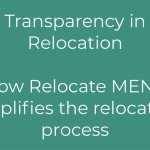The pandemic-induced shift to remote work significantly reshaped the corporate world, and many workers have come to appreciate the flexibility and improved work-life balance that telecommuting affords. Understandably, any move to backtrack on these benefits might meet resistance.
From the perspective of organizational leadership, changing circumstances sometimes necessitate revisiting previous decisions. Some businesses might find that remote work has affected team cohesion, company culture, or productivity levels. In-person interactions can indeed foster creativity, spontaneous idea generation, and a stronger sense of camaraderie. However, if a promise was made to employees about permanent remote work, it could be damaging to employee trust and morale if that promise is not kept.
Promises, particularly those made by organizations to their employees, often serve as a contract of trust. Once that trust is broken, it can be challenging to repair, potentially leading to lowered productivity, decreased job satisfaction, and higher employee turnover.
Rather than making a complete reversal, organizations might find it more beneficial to opt for a hybrid model, where employees can split their time between the office and their homes. This can be a win-win situation, maintaining employee satisfaction while also benefiting from in-person interactions.
Additionally, open and honest communication is essential when considering such changes. Employers should involve employees in decision-making, perhaps by conducting surveys or discussions to understand their preferences and concerns. This will make the transition smoother and show respect for the employees’ views, thus fostering a positive work environment.
While leaders should ideally stand by their promises, if circumstances require a change, it’s essential that they handle it in a manner that maintains trust, respects employee preferences, and ultimately supports the organization’s success.
Remote Work
Remote work allows employees to structure their day in a way that best suits their needs and work styles. This flexibility can lead to increased productivity and job satisfaction.
Flexibility
Remote work allows employees to structure their day in a way that best suits their needs and work styles. This flexibility can lead to increased productivity and job satisfaction.
Work-life Balance
Without commuting, employees can spend more time on personal activities or with family, contributing to an improved work-life balance.
Cost Savings
Employees can save on costs related to commuting, professional attire, and outside meals. Companies can also save on office space and utilities.
Expanded Talent Pool
Companies are not restricted by geographic boundaries when hiring and can attract talent from anywhere in the world.
Health and Safety
In times of a health crisis like the COVID-19 pandemic, remote work reduces exposure to illnesses. It also eliminates commuting, a significant source of stress and accidents.
Office Work
Collaboration and Innovation
Physical offices often facilitate better communication, teamwork, and spontaneous idea generation. Being in the same physical space can lead to more organic discussions and quicker problem-solving.
Building Relationships
Social interaction is a fundamental part of the workplace that contributes to establishing company culture and forming strong professional and personal relationships.
Structure and Routine
Some employees thrive in a structured environment that separates their work and home life. Offices provide a specific environment dedicated to work, which can increase focus and reduce distractions.
Access to Resources
Office work often gives employees access to tools, equipment, or technology they might not have at home. It also provides support staff to troubleshoot issues and maintain productivity.
Visibility
Being present in the office can sometimes lead to more mentorship, advancement, and recognition opportunities. When physically present, it can be easier to showcase one’s commitment and efforts.
Whilst remote work and office work both have distinct benefits. The optimal choice depends on various factors, such as the nature of the work, the company culture, the individual employee’s needs, and the external environment. As many organizations are discovering, a hybrid model can combine the best of both worlds.









